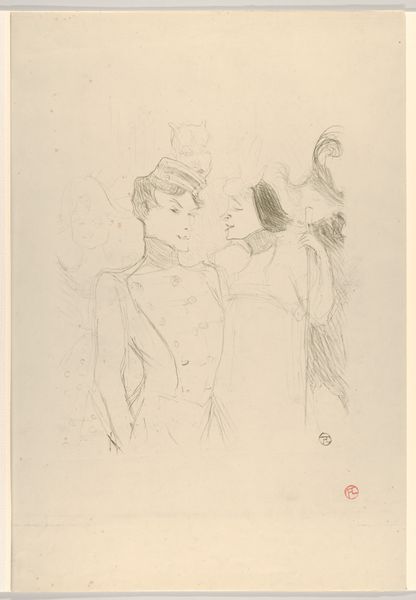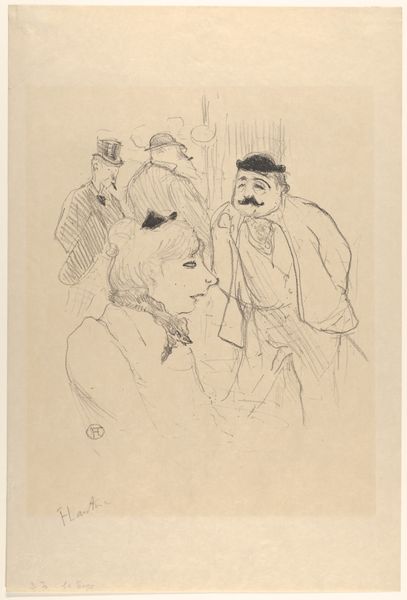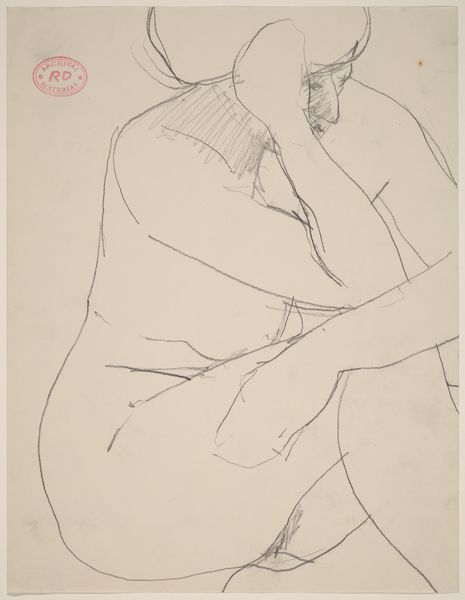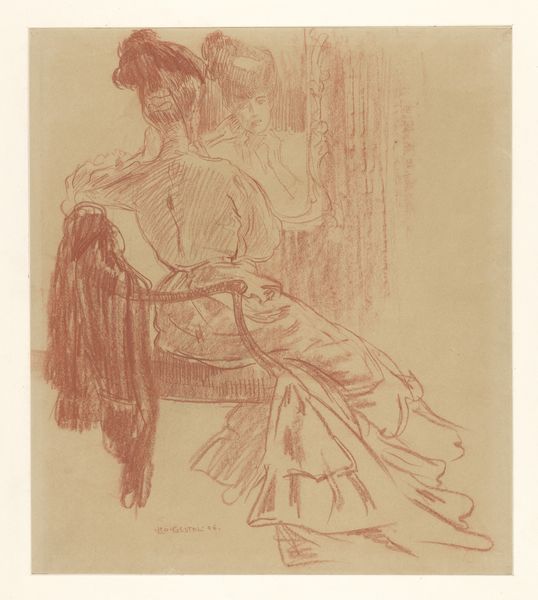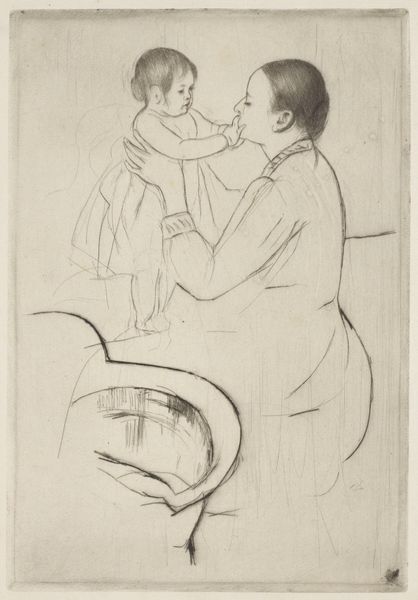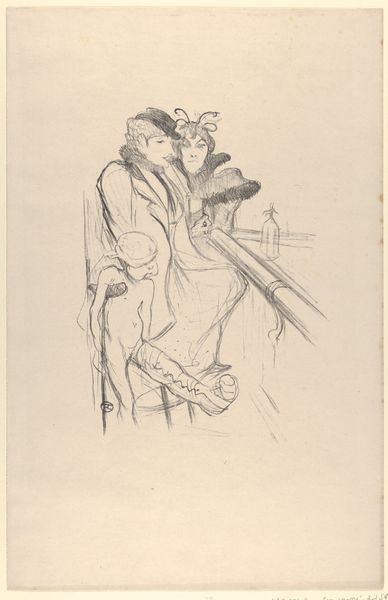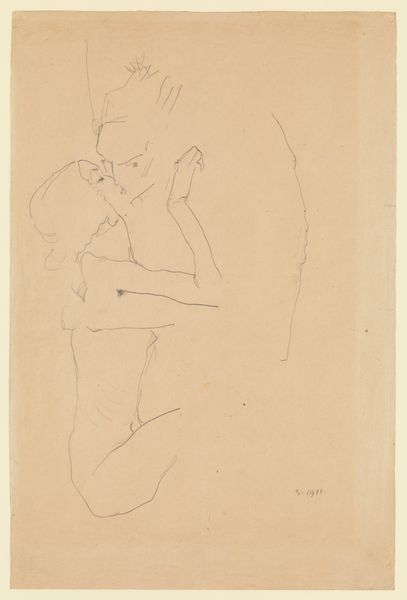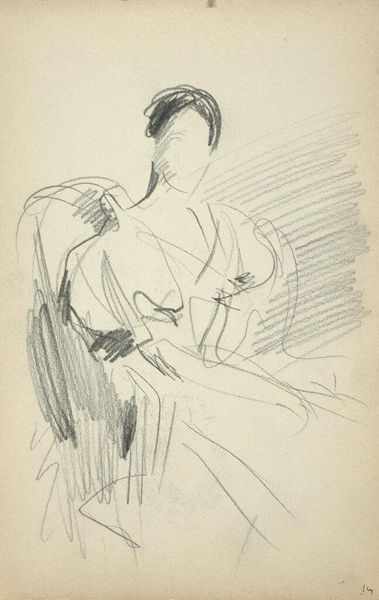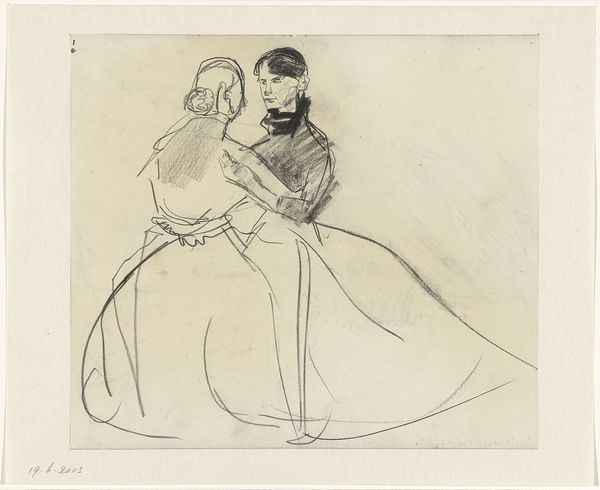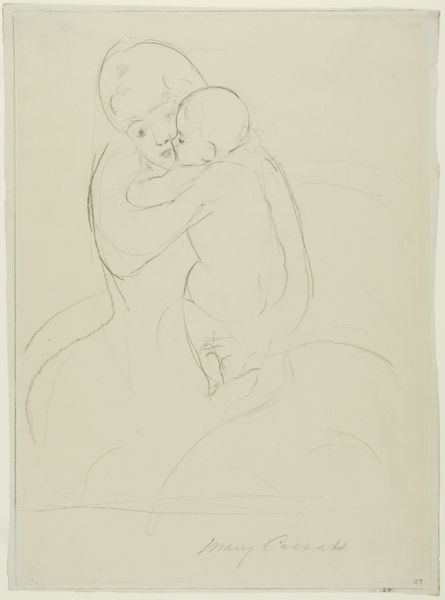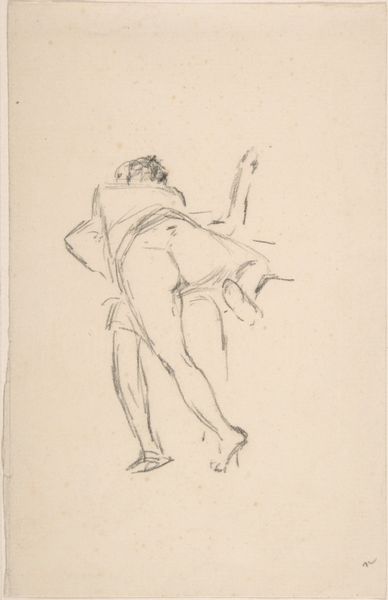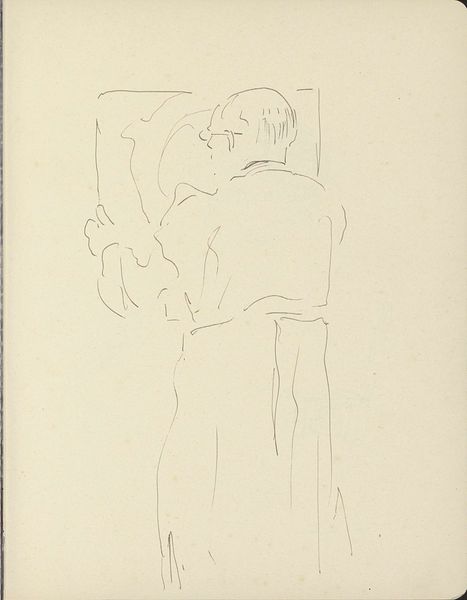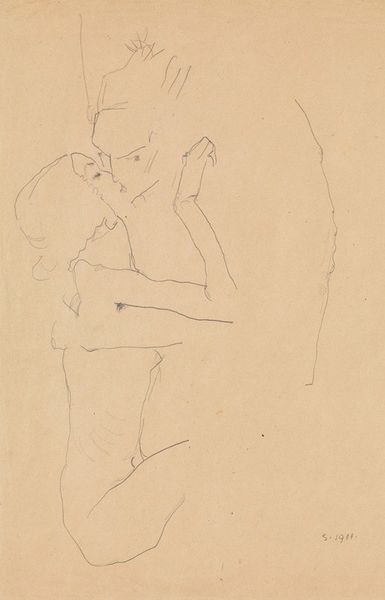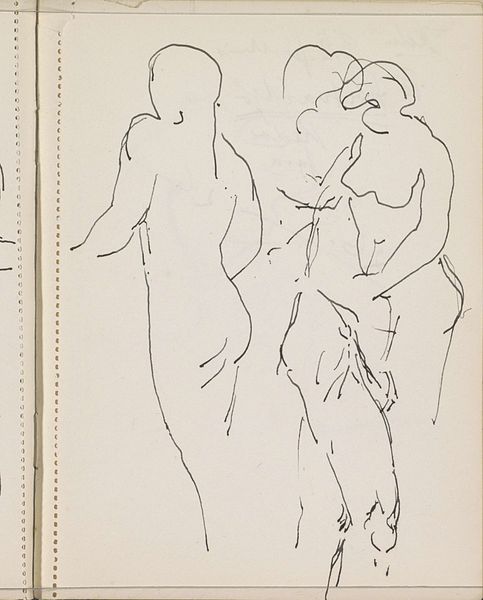
Dimensions: image: 11 7/16 x 9 7/16 in. (29 x 24 cm) sheet: 18 1/4 x 12 3/8 in. (46.4 x 31.5 cm)
Copyright: Public Domain
Editor: This is "In Their Forties," a pencil drawing by Henri de Toulouse-Lautrec, created around 1893. There's something so immediate and unvarnished about it. What do you see in this piece that maybe isn't obvious at first glance? Curator: This drawing really speaks to Toulouse-Lautrec's keen eye for capturing the complexities of Parisian life, particularly its marginalized figures. It isn't simply a portrait; it's a glimpse into the social dynamics of the time, isn't it? Look at the contrast between the two figures – their clothing, their expressions. What do you think he's saying about class, about gender, about the power structures inherent in their relationship? Editor: That's interesting. The man’s bulk and hat imply a certain… position? And the woman’s gaze feels averted, resigned maybe? Curator: Exactly! Think about the representation of women during that period. Often, their worth was tied to their relationship with men, wasn't it? Toulouse-Lautrec, however, frequently depicted women outside those conventions – can-can dancers, prostitutes, entertainers – all pushing against the boundaries of respectability. In this drawing, is he challenging our perception of these roles? Is he revealing the vulnerability beneath the surface of societal expectations? Editor: I hadn't really considered the social commentary embedded in the sketch itself. I guess I was focusing more on just the quickness of the lines. Curator: But even the quickness contributes! Doesn't the sketch-like quality almost imply a fleeting, momentary encounter? Toulouse-Lautrec isn't idealizing or romanticizing anything here; he's presenting a stark, unfiltered reality, and questioning its very basis. And ultimately inviting us to do the same. Editor: I'm starting to appreciate how the simplicity of the medium actually amplifies the social message. It feels rawer, more honest somehow. Curator: Precisely. That tension, that raw honesty is precisely where art becomes a powerful tool for social dialogue and change. Editor: This has definitely opened my eyes to how art can be so much more than just aesthetics. It's a way to really unpack the world around us. Curator: And maybe even change it, just a little.
Comments
No comments
Be the first to comment and join the conversation on the ultimate creative platform.
